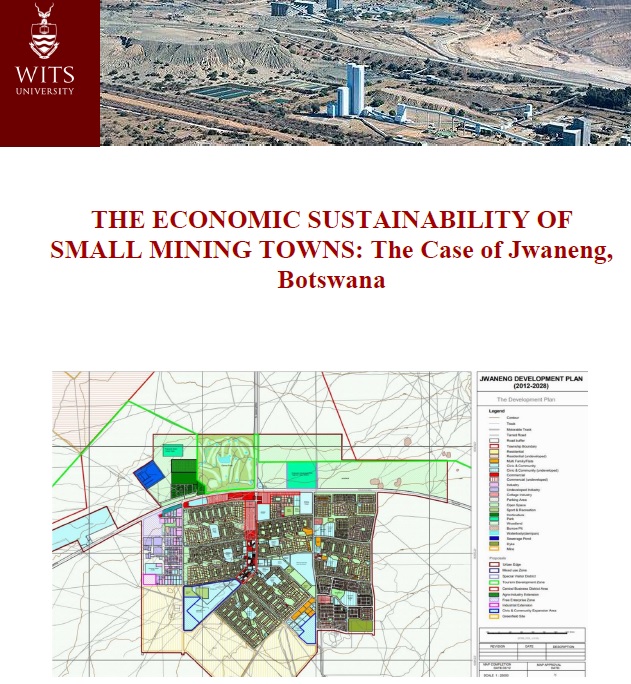The Economic Sustainability of Small Mining Towns
The Case of Jwaneng, Botswana

The impacts of mine closure on the local communities and on the nation’s economic wellbeing where mining is the main economic activity are often devastating. This research explores the alternative ways that could be adopted to achieve the economic development of Jwaneng, Botswana. Sustainable Local Economic Development (LED) is perceived as the solution to moving towards a prosperous future. However LED assumes that all local actors (residents, physical/ urban planners, mine workers, private sector, public sector/government and the mine) will collaborate in shaping the future of Jwaneng. This research highlights that the primary role of urban and economic development planning in working towards economic sustainability in small mining towns is to produce policies and programmes that promote economic growth post mine closure. The economy of Jwaneng has performed well for the past two decades; however, the town’s physical development has progressed slowly. Jwaneng has no policy or programme that focuses solely on the economic development of the town as such. This points to the need for a devoted policy that works towards achieving a better economic future post mine closure and that enhances the quality of life for the people of Jwaneng. Mine closures in the context of developing countries differ from those that occur in developed countries, in that alternative socio-economic and environmental options are limited in developing countries.
Nevertheless, building the foundations for sustainable local economic development is a pressing concern in developing countries requiring creativity, cooperation and leadership. As such, the role should be noticed and not overlooked. Jwaneng, Botswana has the potential to be a tourist attraction town post the mine closure with the game reserve and the mine pits being the destinations. The town also has the potential to be a district service centre. As such, the town could be economically functional even post mine closure; however, there is a need for this to be supported strongly through policy. The Government has responded by referencing mining for specific attention in policies on sustainable development, and by issuing legislation and guidelines for mining. Although mining in Botswana is exceptionally good, excellently regulated and is a point of reference for other countries, there is a need for a more promising intervention. There needs to be an implementation process which aims to ensure promising economic stability and a future not just for the locals, but for the town and country as a whole, post mine closure.
This resource is part of the Mining Towns Collection kindly sponsored by the Municipal Capability and Partnership Programme. Abstract based on source.


Comments